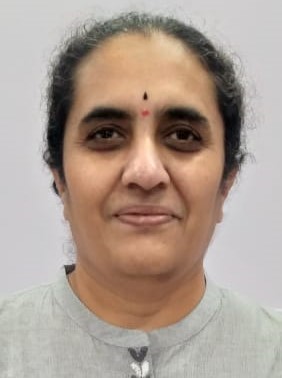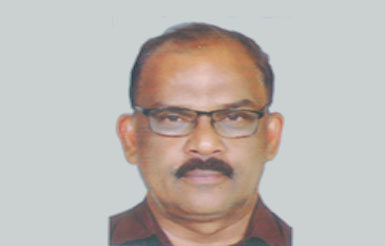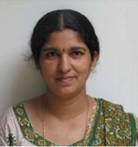
Introduction and Scope
“Journal of ISAS” is an open access peer reviewed quarterly e-journal which is published by Indian Society of Analytical scientists. It invites research papers related to analytical and allied fields such as process development, instrumentation, statistical analysis, environmental analysis and management.
The journal accepts original research articles of 8-10 pages (up to 4000 words), short communications (up to 2000 words), review articles (up to 6000 words) and book reviews (up to 800 words).
Instructions To Authors
- The Manuscript should be typed in MS word (times new roman) with 1.5 spacings and font size 12
- The title of the paper should be clear and concise(font size 14 and bold), the first letter of each noun and adjective in the title must be in capital letter. It will be followed by names of authors(initials followed by surname) with their affiliation
- Corresponding author should be indicated by * with email ID
- The text should be divided into following sections:
- Abstract : up to 300 words
- Key words: 5-6
- Introduction
- Experimental
- Results and Discussion : It should contain Tables and Figures

- Conclusions
- Acknowledgement
- References
- Divisions within the section should be indicated as subheadings
- The figures and tables should be numbered with Roman numerals and must be mentioned in the text at appropriate places
- Standard abbreviations for technical terms and journals should be used
- All constants should be expressed in SI units
- References should be numbered consecutively and should appear in the text as superscript at appropriate places.
- References should be in following pattern:
For research paper:
Authors’ initials and surname, Journal abbreviation, Volume, Page, Year
For book:
Authors’ initials and surname, Book name, Publisher, Place, Year
For proceedings:
Authors’ initials and surname, proceedings of the "write conference name" , place, page, month and year
- The paper is to be submitted in word file and PDF file to isasjournal@isasbharat.in
- After getting the acceptance of the paper, authors have to submit signed copyright form before publishing the article
Editorial Board

Former Professor and Head Chemistry Department and Former Head Environmental Science Department, SPPU, Pune

Former Scientist, Radiochemistry Division, BARC, Mumbai

Former Deputy Director , CFSL, Pune

Chief Scientist, CSIR-NCL, Pune

Head, Chemistry Department, RKNEC, Nagpur

Assistant professor, Department of chemical oceanography, KUFOS, Kochi

Professor in analytical chemistry, RTM Nagpur University, Nagpur

Faculty of Science The Maharaja Sayajirao University of Baroda

Head , Chemical Quality Control, Nuclear Fuels Group, Mumbai

Professor in Analytical Chemistry, Chemistry Dpartment, The Maharaja Sayajirao University of Baroda, Vadodara

Assistant Professor, Department of Analytical Chemistry ,University of Madras,Chennai

General Manager, SϋD- CHEMIE INDIA PVT. LTD, Vadodara
Advisory Board

Adjunct professor, RCOEM, Nagpur and Former Scientist, atomic minerals directorate for exploration and research, DAE

Professor,school of environmental studies and Dean faculty of environmental studies, Cusat, Kochi

Former Emeritus Scientist, chief scientist and Head, Geochemistry Division, NGRI, Hyderabad

Director, School of Basic Sciences, Chemistry Department, RCU, Belgavi

Former Chief General Manager(Corporate R and D)IRERC, Kollam

Head, PCNSand QCIS, Radiometallurgy Division, BARC, Mumbai

Vice chancellor, VISTAS

Assistant Professor, Department of applied sciences, Visvesaraya Technological University Center for Postgraduate Studies. Bengluru Region

His affiliation:Former Head, Analytical and Spectroscopy Division, Vikram Sarabhai Space Centre, Thiruvananthapuram.

Head, thermal analysis and chromatography section, VSSC, Trivendram

Former professor and Head, Applied Chemistry Department ,Cochin University of Science and Technology, Kochi
Manuscript Template
Format your article ready for submission: download one of our free Word templates and follow the instructions to apply it to your document.
DownloadGet in Touch
-
C/0 Elca group of laboratories A-44, ROAD NO. 37 (off road no. 28), near rubber products, wagale estate Thane,Mumbai Maharashtra 400064
-
-
+91 98225 99531 No Call - Only Message
-
+91 9371136828 No Call - Only Message
Contact Us
